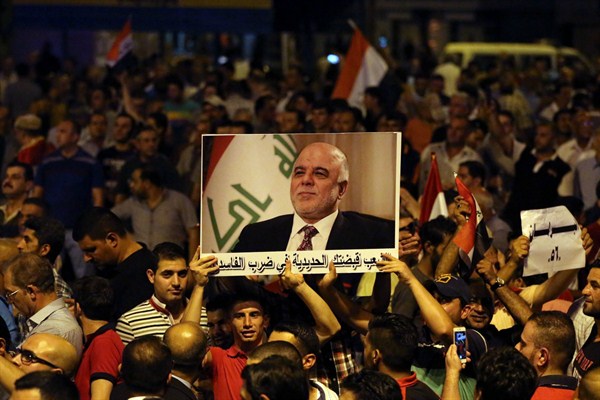On Monday, following through on a threat issued last week, Iraq’s parliament voted unanimously to block Prime Minister Haider al-Abadi from passing anti-corruption measures and other pledged reforms without its approval. The move is just the latest sign of Abadi’s tug-of-war with Iraqi lawmakers. In August, in response to growing protests over graft and dysfunctional utility services, Abadi announced a series of reforms to deal with corruption and mismanagement. Most prominent among them were plans to eliminate several senior political offices that had become patronage vehicles, including Iraq’s three vice presidents and two deputy prime ministers, and to cut back government salaries.
Despite those measures having received parliamentary approval without opposition in August, several politicians have since criticized them as unconstitutional. Meanwhile, the three vice presidents remain in office; one of them is powerful former Prime Minister Nouri al-Maliki.
Last week, more than 60 members of Abadi’s ruling State of Law coalition—many of them Maliki supporters—warned the prime minister in a letter that they would pull parliamentary support for his reforms if he didn’t meet their demands to consult with them more. Monday’s vote followed through on that threat. “Under this resolution no more absolute authorities for the prime minister,” one Iraq lawmaker told Reuters.

